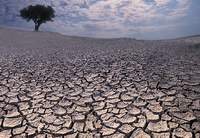Global warming: time bomb causing irreparable damage to Earth
Scientists seem to be very good at making up numerous stories about climate doomsday that is just around the corner. Ten years ago scientists told the public that the world’s oil reserves would be pumped dry in two decades. Ten years gone yet there is plenty of oil around. Astronomers regularly report on asteroids and meteorites ostensibly bound to hit the planet. However, deadly celestial intruders fly past Earth despite the gloomy predictions. The 2004 movie The Day After Tomorrow by Roland Emmerich can be credited for having drawn lots of attention to the issue of global warming. Is global warming really going to happen on the day after tomorrow? Perhaps we are no longer able to tell real threats from the imaginary ones.

The World Glacier Monitoring Service released a preliminary report last week in Zurich. The United Nations-backed report says that the mountain glaciers around the world are melting at an alarming pace, confirming a trend already observed in previous studies. According to the report, from 2000 to 2005, an annual decrease in ice thickness amounted to 0.6 meter. The average ice loss rate was 1.6 times higher than that of the 1990s, and three times that of the 1980s. The findings are based on observations that have been conducted on 30 mountain glaciers since 1980. Ice thickness of the glacier surface areas decreased by 9.6 meters since 1980.
Let us digress for a moment and lay special emphasis on the role of changes measured in millimeters, centimeters and meters in terms of Earth’s geology and ecology. A shift of several centimeters in continental platforms can trigger a disastrous earthquake or tsunami. Therefore, scientists believe that the recent increase in ice loss rates (nearly 10 meters of glacier ice melted away over 27 years) is an appalling trend.
A team of scientists from Canada and U.S. came up with a scary theory during the annual meeting of the American Geophysical Association last fall. Scientists suggested that the year-round ice sheet over the Arctic Ocean might be completely gone by 2040. Consequently, there would be no winter or freezing temperatures in Europe in the year 2080. The ice sheet has decreased by 8% over the last several years. Some European scientists share the bleak viewpoint on the problem. Humankind simply cannot afford the luxury of staying on the fence in a situation when the world’s largest reserves of fresh water may be put under threat.
Achim Steiner, executive director of the United Nations Environmental Program, stressed the point that an expert team had found solid scientific evidence linking the activities of man to global warming. “The findings should strengthen resolve of the governments to take urgent steps aimed at reducing greenhouse gas emissions. They shouldalso give the governments an impetus to draw up a long-term strategy for warding off dangerous climatic changes,” Steiner was quoted as saying by the U.N. news service.
The experts were to submit a report on global climatic changes to the UN on February 2. Predictably enough, the report will contain a great deal of pessimism with regard to climate change. The latest report is likely to confirm the scale of the upcoming climatic changes: Earth’s average temperatures would rise by approximately 3 degrees Celsius in the future. Meanwhile, “global warming would pose a direct threat to the planet if temperatures rise by more than 2 degrees,” according to Jean Jousel, a French climatologist. “In Russia, air temperatures have increased by an average of 1 degree in the course of the 20th century,” Alexander Minin, a senior researcher at the Institute of Global Climate and Ecology, was quoted as saying by RIA Novosti news agency.
The Kyoto Protocol came into effect in 1991. The document gave rise to much controversy regarding its pros and cons in many countries, Russia inclusive.
However, scientists believe the protocol is just a drop in the ocean – it will hardly have any large-scale positive impact on the environment. Overall greenhouse gas levels around the globe would only be reduced by 5% provided that all the countries committed themselves to strictly following the terms of the agreement. As a result, we do not have any climate these days. All we have is weather, which tends to be foul most of the time. Soon it would be hard to tell a season of the year by taking a glance out the window.
Birds have been confused by the weather; trees were about to burst into blossom in the wrong season; even smelt swam to their birthplaces to spawn in the middle of winter. Consequently, their offspring were killed by freezing temperatures. Swiss ski resorts post record lost profits as average annual temperatures in Greece stay at 20 degrees Celsius.
We are sitting on a huge climatic bomb that can go off any moment one of these days. So far the governments have failed to take any action to tackle the problem. “The man in the street seems to banish thoughts about most serious consequences arising from climate change. Moreover, the majority of the powers that be do exactly the same. That’s the saddest situation,” said Ervin Le Tret, director of the Laboratory of Dynamic Climatology in Paris. An international conference of climatologists went under way in the French capital on February 2. It stands to reason that the conference aims to primarily send a clear signal to the politicians about the importance of taking urgent steps for addressing the “human factor” of global warming.
Arguments and Facts
Translated by Guerman Grachev
Pravda.ru
Subscribe to Pravda.Ru Telegram channel, Facebook, RSS!


